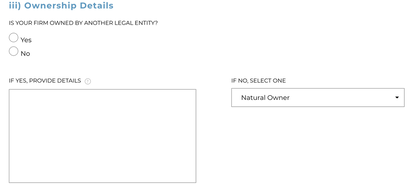Legal Entity Identifier (LEI) AfricaHow to get a Legal Entity Identifier in AfricaIf you are transacting in the global financial system, you will more than likely be required to obtain a Legal Entity Identifier (LEI).
Whether your company is registered in the African continent or registered in an offshore destination such as Seychelles or Mauritius, you can obtain an LEI quite easily regardless of the location. Applying for an LEI number is simple, and can be completed in a matter of minutes regardless of the entity type. Having an LEI is recommended especially in Africa countries due to mandates for trade reporting obligations such as the Financial Markets Act 2018. |
Legal Entity Identifiers in Africa
The country with the largest number of active LEIs in Africa is Mauritius with 2,170 companies registered. Mauritius has a large number of non-resident companies, however has a very strong legal and regulatory framework when it comes to transparency and international compliance standards. This is shown by their large adoption rates of the Legal Entity Identifier.
After Mauritius is South Africa, followed by the Seychelles, Liberia and Kenya.
After Mauritius is South Africa, followed by the Seychelles, Liberia and Kenya.
|
WHAT AFRICAN COUNTRIES MAY OBTAIN AN LEI CODE?
|
Who needs an LEI in Africa?
The use of the LEI is required by African entities when they are trading and reporting and also if conducting activities within the US, EU or UK. The financial markets in South Africa are regulated by the Financial Markets Act 2018.
The LEI is Globally Regulated by the Financial Stability Board (FSB) for transaction data collecting in the global securities marketplace. Other global standards such as the OTC Derivatives Market Reforms 2019 effect companies located within the African continent.
In South Africa for example, LEIs are used primarily by OTC Derivatives Providers to report transactions to their Trade Repository. This was mandated in the Conduct Standard 3 in 2018.
Mauritius and the Seychelles have a lot if international businesses registered there, however Africa itself is much larger and in the next few years we will see high adoption rates from countries such as Kenya, Liberia, Nigeria and more. To track regulations, you can see a full list of mandates by country here: LEI Regulations
The LEI is Globally Regulated by the Financial Stability Board (FSB) for transaction data collecting in the global securities marketplace. Other global standards such as the OTC Derivatives Market Reforms 2019 effect companies located within the African continent.
In South Africa for example, LEIs are used primarily by OTC Derivatives Providers to report transactions to their Trade Repository. This was mandated in the Conduct Standard 3 in 2018.
Mauritius and the Seychelles have a lot if international businesses registered there, however Africa itself is much larger and in the next few years we will see high adoption rates from countries such as Kenya, Liberia, Nigeria and more. To track regulations, you can see a full list of mandates by country here: LEI Regulations
|
If you currently own or are responsible for an African company or investment firm registered there, you may not need an LEI by law yet. If you are engaged in international activity it is a good idea to have an LEI before you need one as it is quickly being adopted as a global standard and there are already over 1.5 million LEIs registered globally.
If you are in financial services you will be required to legally register your entity for an LEI in order to fulfil your reporting obligations. To find out more information about this category of requiring an LEI please see our post discussing Who Needs an LEI? |
Speak to our team of experienced professionals to find out more information about the LEI requirements in Africa: [email protected]
How to get a Legal Entity Identifier in Africa
Obtaining a Legal Entity Identifier code is a simple process. The LEI application form only takes a few minutes and any representative of the company may apply on behalf of the entity.
1. Click on the 'Register New LEI' button here or visit the homepage of this website. To begin, fill out your contact details as the applicant. This information will be used to contact you in case any additional information is required.
2. Next, begin filling out the details of the entity which requires an LEI. This will include information such as the address, name of Director or person legally responsible for the entity such as CEO, or Owner.
3. The next section 'Level 2 Data' gives you the opportunity to report parent company information.
For example, if your company is a branch of a larger organisation, or is owned by another company you may have that information appear on the LEI record. However, this is not a legal obligation. If you wish to report a legal parent company, please note that you will be requested to provide evidence of this relationship by way of Consolidated Accounts (i.e an annual report).
You may only report parent information if the parent company consolidates the accounts and the subsidiary is listed there.
For example, if your company is a branch of a larger organisation, or is owned by another company you may have that information appear on the LEI record. However, this is not a legal obligation. If you wish to report a legal parent company, please note that you will be requested to provide evidence of this relationship by way of Consolidated Accounts (i.e an annual report).
You may only report parent information if the parent company consolidates the accounts and the subsidiary is listed there.
4. The final section allows you to upload documentation relevant to your application. When an LEI application is submitted, the data is cross matched with what is on the relevant local companies registry.
If however the company cannot be found, or the data does not match the registry, we may request that you provide supporting documentation. Some good examples include a document from ZA, a Certificate of Incumbency, Register of Directors, or a registry extract.
A registered company in South Africa for example may with to provide their local registry form as it confirms important company information.
If however the company cannot be found, or the data does not match the registry, we may request that you provide supporting documentation. Some good examples include a document from ZA, a Certificate of Incumbency, Register of Directors, or a registry extract.
A registered company in South Africa for example may with to provide their local registry form as it confirms important company information.
Once the application is submitted, simply choose your preferred payment method and complete the application. LEI Worldwide use our payments provider STRIPE and PayPal. We also offer the ability to complete a bank transfer or swift payment in any currency including Euro and South African Rand.
A member of the LEI Worldwide team will review the submission upon completion and you will receive your LEI code within a few hours.
If you have any questions please contact [email protected]
A member of the LEI Worldwide team will review the submission upon completion and you will receive your LEI code within a few hours.
If you have any questions please contact [email protected]
To apply for your own LEI or on behalf of a legal entity, please select the option from the buttons below.















